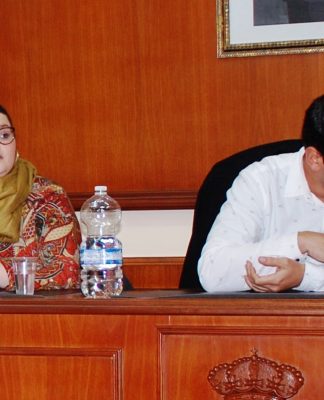Email
San Fulgencio
March 9
Dear Editor,
I wonder; what is the point of the United Nations?
On Friday, February 25, 2022, a UN Security Council resolution ordering Moscow to cease all military operations in Ukraine and withdraw its troops, failed.
Eleven of the 15-strong Security Council voted in favour of the resolution, with three (China, India and the United Arab Emirates) abstaining. The one vote against came from – surprise, surprise – Russia!
A General Assembly resolution followed on March 2, with 141 countries voting to condemn the Russian aggression, 35 abstaining and the usual suspects voting against (five).
Amazingly, unlike Security Council ones, General Assembly resolutions are not legally binding upon member states! The vote simply represents an expression of international opinion.
In their article, ‘The Use of Force in UN Peacekeeping’ (The IO Foundation, 2017), Lise Howard and Anjali Daval argue that mandates granted by the Security Council ‘do not serve to achieve’ the UN’s stated primary purpose : ‘to maintain international peace and security… (UN Charter, Article 1.1)
They suggest that the reason for this failure lies in a one-size-fits-all solution to widely different situations. Given how difficult it is to even get a mandate to act, I think that there is a more fundamental problem, the structure of the UN itself.
The present invasion is not the first time that the Russian Federation has engaged in military action in foreign lands, and not the first time they have been at war with another UN state (Georgia), in clear contravention of Article 2 of the Charter.
Article 6 of the Charter reads:
‘A Member of the United Nations which has persistently violated the Principles contained in the present Charter may be expelled from the Organization by the General Assembly upon the recommendation of the Security Council’.
So, why is expulsion not on the agenda, if the objective is to isolate Russia?
Basically, this is because it is impossible to achieve! Russia is a permanent member of the Security Council with an effective right of veto. A Security Council resolution passes if it receives nine of the 15 votes available, but those nine votes must include ALL of the permanent members (China, France, Russia, the UK and the USA), or their abstention.
The geopolitics of the time meant that the veto for the ‘Big Five’ was the price that had to be paid in order to establish the UN, and now I doubt if any of the permanent members of the Council would ever renounce the power the veto gives them to look after their own interests. Turkeys don’t vote for Christmas.
However, it means that, in essence, the tail wags the dog and that, despite all the valuable work done through agencies such as UNESCO, UNICEF and the World Food Programme, the UN is undemocratic and unfair, and is not fit for purpose.
It requires reform, but the veto makes this impossible. The only solution would seem to be to start afresh, for every member to withdraw from the UN and a new organisation with sensible rules to be created. That is unlikely to happen!
In any case, withdrawal is not that easy. For various reasons dating back to 1923, the UN Charter deliberately makes no provision for the withdrawal of member states, largely to prevent the threat of withdrawal being used to evade obligations under the Charter, or used as a form of political blackmail.
The only country to make a real attempt to withdraw so far has been Indonesia in 1965. The UN response was to ignore it!
Joe Pilkington.








































